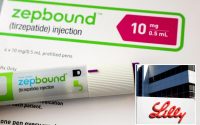FDA says Sudafed, Benadryl, other decongestants don’t work
An advisory panel of the Food and Drug Administration stated today that virtually all over-the-counter decongestants simply don’t work.
The FDA panel found that phenylephrine — the active ingredient in Sudafed, Benadryl, Robitussin and other popular decongestants — is nearly useless at reducing nasal congestion.
The advisory panel’s ruling might soon lead to these oral products being pulled off store shelves nationwide. (Nasal sprays containing phenylephrine are unaffected by the ruling.)
“This drug and this oral dose should have been removed from the market a long time ago,” Jennifer Schwartzott, a patient advocate from New York, told NBC News.
“The patient community requires and deserves medications that treat their symptoms safely and effectively and I don’t believe that this medication does,” Schwartzott added.
Phenylephrine first came to prominence in 2006 after another decongestant, pseudoephedrine, was taken off drugstore shelves because it’s an ingredient in the illegal stimulant methamphetamine.
After the passage of the Combat Methamphetamine Epidemic Act of 2005, pseudoephedrine was available only behind the counter, so drugmakers replaced it with phenylephrine-based products.
The FDA panel analyzed the early documents and studies that were used to support phenylephrine’s OTC use. The agency found that study results were inconsistent, did not meet modern standards for study design or had flawed data integrity.

In contrast, several recent studies into phenylephrine found that the drug didn’t reduce nasal congestion much more than a placebo, even at doses as high as 40 milligrams.
“In conclusion, we do believe that the original studies were methodologically unsound and do not match today’s standard,” said Dr. Peter Starke, an FDA official who led the review of phenylephrine.
“By contrast, we believe the new data are credible and do not provide evidence that oral phenylephrine is effective as a nasal decongestant.”
The FDA first started investigating oral phenylephrine in 2007, according to MedPage Today, in response to a citizen petition, and an advisory committee meeting was held that same year.
In the meantime, there was some industry pushback against regulation of the drug, which remains the case today.
The Consumer Healthcare Products Association, an industry representative group, had argued for keeping the drug available, citing the “totality of the scientific evidence” with pre-existing studies to support efficacy.
They criticized the more recent clinical studies as having “important limitations” that were “conducted using a study population that is not appropriate to evaluate the efficacy of phenylephrine for OTC use.”

The group also shared a survey that found 1 in 2 households in the US used an oral decongestant over the past year. It also found that people prefer oral decongestant tablets over nasal sprays 3 to 1.
The market for decongestants is huge: A consumer study of 100,000 US households showed that about half purchased medications with phenylephrine over the course of the year, and most of those did so several times a year.
Though the findings of the FDA advisory panel are nonbinding, the FDA usually sides with the panel, which may lead to oral phenylephrine products being removed from store shelves in the near future.


